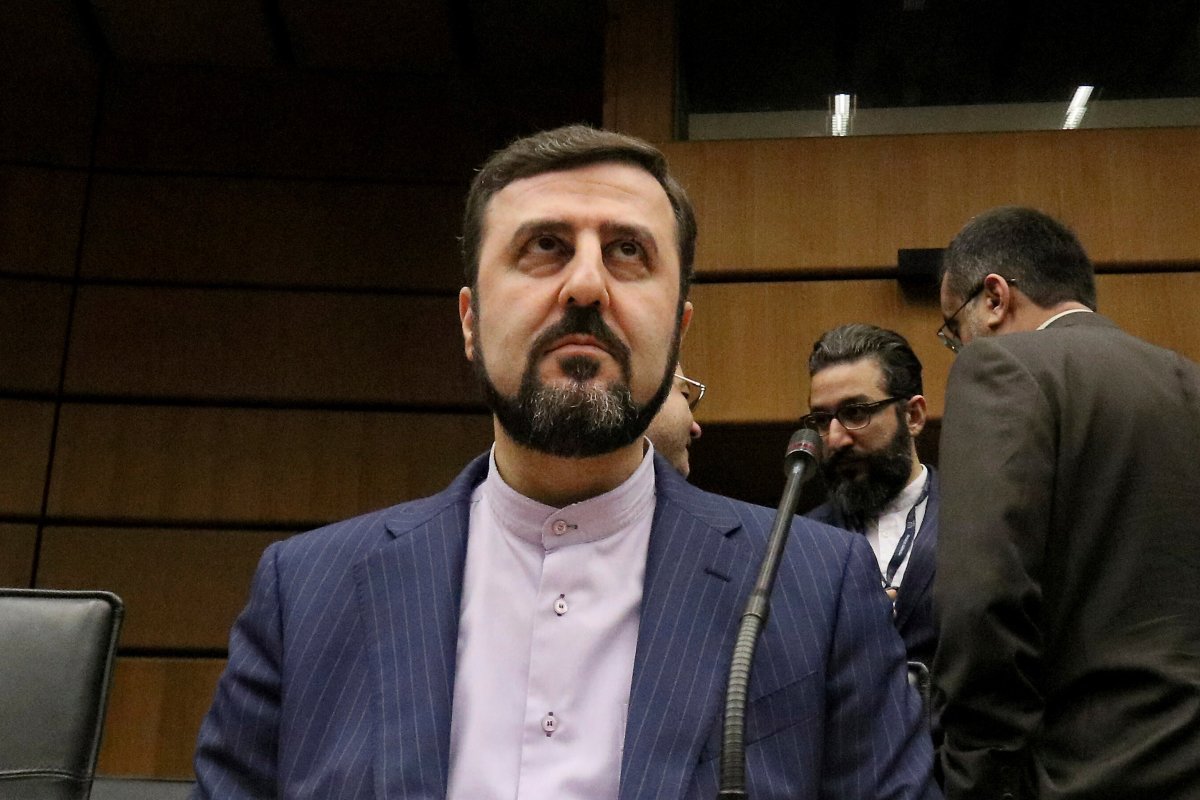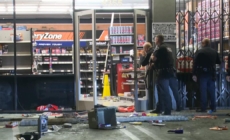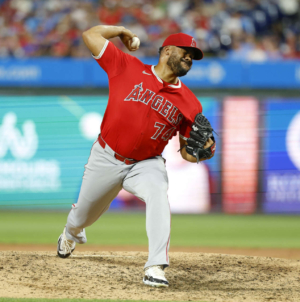-
Dodgers Could Reunite With Closer Kenley Jansen in Deadline Homecoming - 11 mins ago
-
Liverpool to Create Permanent Memorial Sculpture at Anfield to Honor Diogo Jota - 32 mins ago
-
Elderly Americans Lose $745M to Scams in 2025 So Far - 51 mins ago
-
2025 MLB Hall of Fame Primer: Ichiro Suzuki, CC Sabathia, Dave Parker, More - about 1 hour ago
-
At Least 11 People Injured in Stabbing at Michigan Walmart - about 1 hour ago
-
Phillies vs. Yankees Highlights | MLB on FOX - 2 hours ago
-
Rams’ Sean McVay Drops Concerning Matthew Stafford Injury Update - 2 hours ago
-
Johnny Depp joins Alice Cooper on stage for surprise Ozzy Osbourne tribute - 3 hours ago
-
Inter Miami CF vs. FC Cincinnati Highlights | MLS | FOX Soccer - 3 hours ago
-
Landlord Who Killed Palestinian Boy in Hate Crime Dies in Prison - 3 hours ago
Iran nuclear talks restart in Turkey: What we know
European and Iranian diplomats have arrived in Istanbul in a renewed effort to resolve the standoff over Tehran’s nuclear program. The talks mark the first formal engagement since June’s 12-day war between Iran and Israel, a conflict that included U.S. airstrikes on Iranian nuclear facilities and heightened tensions across the region.
The discussions come as the UK, France, and Germany—collectively known as the E3—consider triggering a “snapback” mechanism that would reimpose UN sanctions lifted under the 2015 nuclear accord. In a bid to de-escalate, the E3 are floating a temporary extension of the sanctions deadline, contingent on Iranian commitments to diplomacy and international nuclear oversight.
Newsweek has reached out the State Department and Iran’s foreign ministry for comment.
Why It Matters
The outcome of the Istanbul talks could determine whether the 2015 Joint Comprehensive Plan of Action (JCPOA) has any future. The U.S. withdrew from the deal in 2018 during President Donald Trump’s first term. Since then, Iran has expanded its uranium enrichment, prompting alarm in some Western capitals and the International Atomic Energy Agency (IAEA).
The “snapback” of sanctions would isolate Iran further, risk collapse of the Nuclear Non-Proliferation Treaty (NPT), and possibly accelerate regional instability. Yet a successful diplomatic turn could restore limited trust and reduce the likelihood of further conflict.
Francisco Seco/AP Photo
What To Know
Western diplomats say a delay in triggering “snapback” is possible—if Iran resumes full cooperation with the IAEA and engages credibly in talks. European leaders have warned that sanctions will return by the end of August if no progress is made. Officials say Iran must also address the status of over 400 kilograms of uranium enriched to 60 percent purity, a level just below weapons-grade.
Tehran’s Distrust
Iran has conditioned its participation on what it calls “key principles,” including guarantees against U.S. and Israeli military action during talks. Tehran suspended cooperation with the IAEA following the recent strikes and insists that its uranium enrichment is peaceful and within legal bounds.
Iranian Deputy Foreign Minister Kazem Gharibabadi, in a lengthy post in Farsi on X, emphasized that rebuilding trust in U.S. intentions is essential and outlined the principles guiding Tehran’s engagement. Meanwhile, President Masoud Pezeshkian stated that Iran is “prepared for another war,” while reiterating its program is compliant with international law.
در جریان سه روز حضور اینجانب در سازمان ملل متحد در نیویورک، رایزنی ها و برنامه های مختلفی انجام شد:
1. حضور در نشست شورای امنیت به ریاست معاون نخست وزیر و وزیر امور خارجه پاکستان و سخنرانی درخصوص تجاوز رژیم صهونیستی و آمریکا علیه کشورمان، پاسخ قاطع ایران و تاکید بر ارائه پاسخ…
— Gharibabadi (@Gharibabadi) July 24, 2025
U.S. Not at the Table
The U.S. is not participating in this round of nuclear talks since it is no longer a party to the JCPOA. Trump’s withdrawal from the agreement in 2018, means the U.S. has been excluded from formal gatherings between the remaining signatories.
Earlier this year, Washington engaged Iran in five rounds of indirect talks, with a sixth round scheduled just before Israel launched strikes on Iranian nuclear and military sites. Those attacks—and Iran’s retaliatory strikes—halted further progress and shifted diplomatic momentum toward the E3.

Ronald Zak/AP Photo
What People Are Saying
Iran’s Deputy Foreign Minister Kazem Gharibabadi : “For entering negotiations, several key principles are important: gaining Iran’s trust, as Iran has no trust in the United States, not using negotiations as a platform for hidden agendas such as military action—although Iran will be fully prepared—respecting and recognizing Iran’s rights under the Non-Proliferation Treaty, including enrichment in accordance with Iran’s desired needs, and lifting sanctions.”
U.S. State Department spokesperson Tammy Bruce: “The ball is in their court. The Iranian leadership has a window of opportunity to choose a path of peace and prosperity for their people, and we are also ready to talk directly to the Iranians. However, we are also closely coordinated with our E3 partners.”
What Happens Next
If Iran agrees to re-engage with inspectors and resume talks under clear terms, sanctions could be temporarily deferred. However, without concrete progress, European powers are poised to reimpose punitive measures by late August, setting the stage for a high-stakes diplomatic showdown.

Vahid Salemi/AP Photo
Source link































